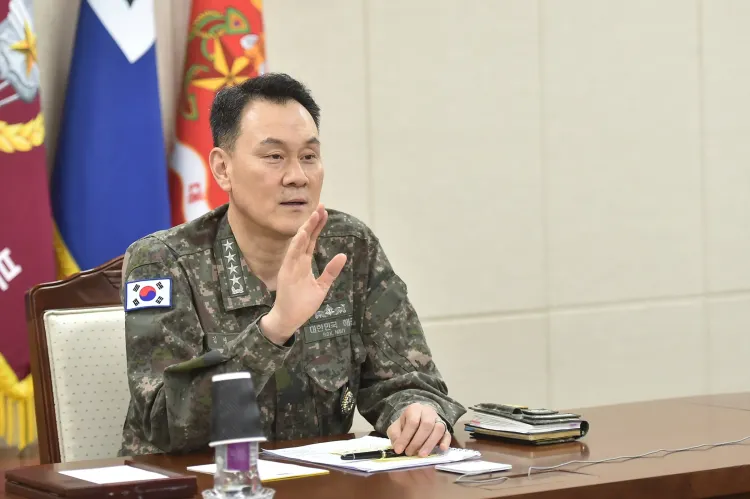How Are Military Leaders of South Korea, US, and Japan Enhancing Security Cooperation?

Synopsis
Key Takeaways
- Strengthened trilateral security cooperation among South Korea, the US, and Japan.
- Upcoming Trilateral Chief of Defense meeting in July.
- Response to North Korean threats is a priority.
- Joint military drills conducted to enhance deterrence.
- Coordination amidst rising geopolitical tensions.
Seoul, May 21 (NationPress) The leading military officials of South Korea and the United States have committed to enhancing the allies' trilateral security collaboration with Japan during their initial video conference earlier this week, as reported by the South's military on Wednesday.
Adm. Kim Myung-soo, the chairman of the Joint Chiefs of Staff (JCS), alongside his American counterpart, Gen. John Daniel Caine, engaged in discussions on Tuesday, marking their first meeting since Caine assumed his position last month.
The JCS stated, "Through the upcoming South Korea-US-Japan Trilateral Chief of Defense meeting scheduled for July in South Korea, both parties agreed to amplify the momentum of trilateral security cooperation."
In light of increasing nuclear and missile threats from North Korea, the three nations have intensified their trilateral security efforts through joint military exercises, as reported by Yonhap news agency.
Kim and Caine underscored the necessity of establishing effective capabilities and positions to counter the advancing threats from North Korea, particularly in response to Pyongyang's growing alliance with Moscow, according to the JCS.
There are suspicions that North Korea has been receiving military technology from Russia in exchange for sending troops to support Moscow's operations against Ukraine.
In March 2025, South Korea, the US, and Japan executed joint naval drills involving the USS Carl Vinson aircraft carrier, as stated by Seoul's defense ministry, aiming to enhance deterrence against North Korea's chemical, biological, and radiological (CBR) threats.
This trilateral naval drill was the first of its kind this year and the first since US President Donald Trump resumed office in January, occurring in international waters south of the resort island of Jeju.










